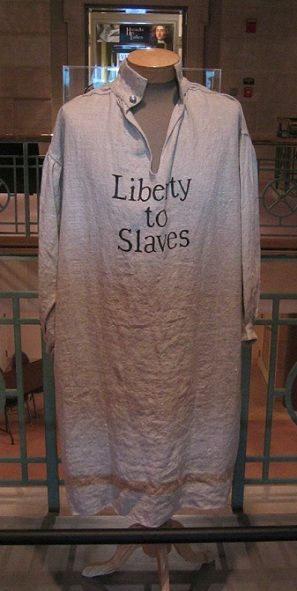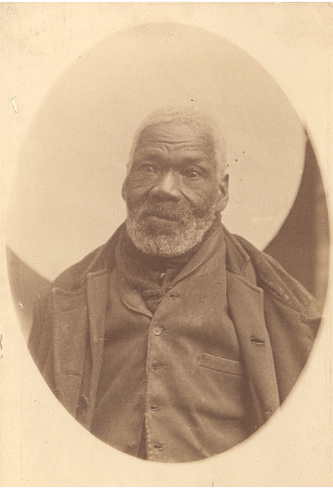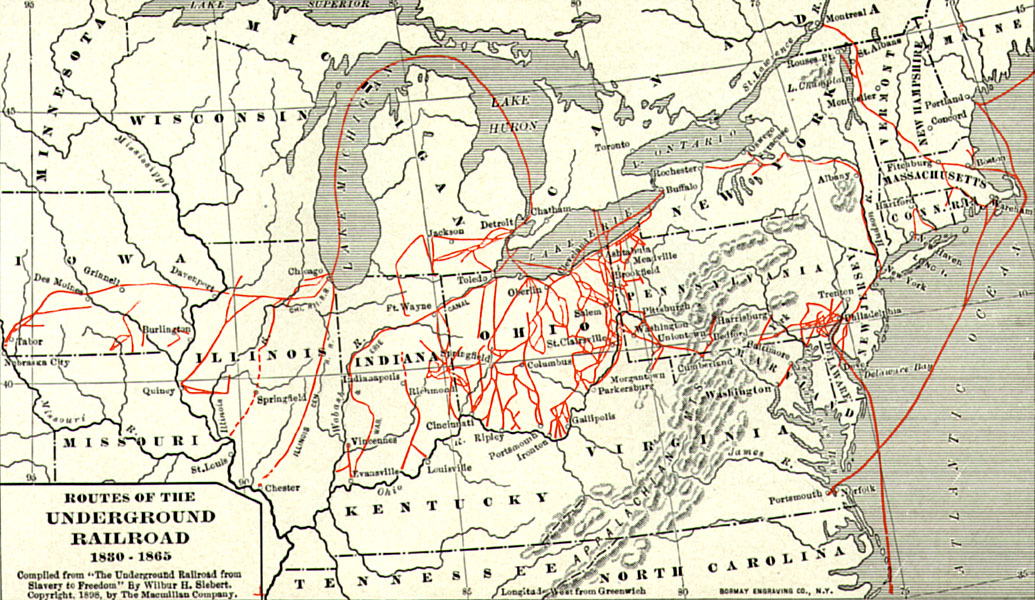I grew up in southern Ontario, where we constantly heard myths about what made being Canadian so great. We weren't Americans! We didn't do silly things throw tea into harbours or fight for our freedom, and we didn't have slavery or racism, daggummit! In fact, things were so great here that thousands of African-Americans escaped, with the help of magical "The Good One" White Folks, over the border into the obviously better land of racial and societal harmony where our hockey teams never lose and the maple syrup never runs dry.
The proof was all around us! There were monuments and museums to black Canadian history everywhere in the rural south (of Ontario). Many of them were even the former homes of the escaped.
However, if you enter one of these museums, as I often did, and actually listened to what they told you...the myth begins to fall apart.
Yes, Ontario ended slavery early even by British standards. But among the earliest settlers were enslaved persons, Africans and indigenous. Yes, many African-Americans made there way north, lured by promises of freedom and equality. But a significant number returned when the welcome was less warm than expected. Local schools were free to segregate by law in virtually any community with a substantial community of colour. Letters from the time, and also from the end of segregation, indicate that although black Ontarians were outraged and appalled at the obviously unequal facilities they were provided, they were also fearful of being integrated as violent intimidation always loomed.
And another thing...if Canada was so good, where were all the black people? There were plenty in the USA, plenty in the West Indies. So if Canada was such a good place for African-Americans to move to, why didn't they?
We can't answer all these questions here, but basically this thread is to explore a topic beginning with the black Loyalists....
The black Loyalists were 3,000 people named by the British government as deserving consideration of compensation due to services during the ARW. Spoiler alert, they weren't given the same amount or quality of land or provisions, when they got it at all, and in 1792, 40% of them left Nova Scotia for Sierra Leone, tired of waiting for land that seemed it would never come.
So what would things be like if the rhetoric of the time lived up to the reality? What if the Black Loyalists were indeed found suitable land, (perhaps in southern Ontario), what if the underground railroad was larger and more successful, what if Ontario had been slightly more welcoming...what if Canada had a substantial black or Afro-Canadian population from its founding?
What are the prospects for a Black Loyalist colony in BNA post ARW?
Sources: The Black Population of Canada West on the Eve of the American Civil War: A Reassessment Based on the Manuscript Census of 1861 MICHAEL WAYNE
Highly recommended, short essay.

 en.wikipedia.org
en.wikipedia.org

 en.wikipedia.org
en.wikipedia.org

 en.wikipedia.org
en.wikipedia.org

 en.wikipedia.org
en.wikipedia.org

 en.wikipedia.org
en.wikipedia.org
The proof was all around us! There were monuments and museums to black Canadian history everywhere in the rural south (of Ontario). Many of them were even the former homes of the escaped.
However, if you enter one of these museums, as I often did, and actually listened to what they told you...the myth begins to fall apart.
Yes, Ontario ended slavery early even by British standards. But among the earliest settlers were enslaved persons, Africans and indigenous. Yes, many African-Americans made there way north, lured by promises of freedom and equality. But a significant number returned when the welcome was less warm than expected. Local schools were free to segregate by law in virtually any community with a substantial community of colour. Letters from the time, and also from the end of segregation, indicate that although black Ontarians were outraged and appalled at the obviously unequal facilities they were provided, they were also fearful of being integrated as violent intimidation always loomed.
And another thing...if Canada was so good, where were all the black people? There were plenty in the USA, plenty in the West Indies. So if Canada was such a good place for African-Americans to move to, why didn't they?
We can't answer all these questions here, but basically this thread is to explore a topic beginning with the black Loyalists....
The black Loyalists were 3,000 people named by the British government as deserving consideration of compensation due to services during the ARW. Spoiler alert, they weren't given the same amount or quality of land or provisions, when they got it at all, and in 1792, 40% of them left Nova Scotia for Sierra Leone, tired of waiting for land that seemed it would never come.
So what would things be like if the rhetoric of the time lived up to the reality? What if the Black Loyalists were indeed found suitable land, (perhaps in southern Ontario), what if the underground railroad was larger and more successful, what if Ontario had been slightly more welcoming...what if Canada had a substantial black or Afro-Canadian population from its founding?
What are the prospects for a Black Loyalist colony in BNA post ARW?
Sources: The Black Population of Canada West on the Eve of the American Civil War: A Reassessment Based on the Manuscript Census of 1861 MICHAEL WAYNE
Highly recommended, short essay.

Black Loyalist - Wikipedia

Black refugee (War of 1812) - Wikipedia

Black Nova Scotians - Wikipedia

Nova Scotian Settlers - Wikipedia

Underground Railroad - Wikipedia
Last edited:
